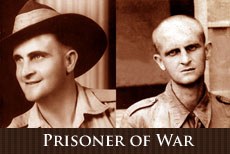Well, it is time for Friday Follow Interview and this week it is Dr. Jason Fox. A few weeks back there was a chorus of tweets from excited educators in Sydney stating that I should ask Jason to be a guest on the Friday Follow Twitter Interview and so I dropped Jason a line via Twitter and he graciously agreed to be a guest. Well, here are Jaosn’s responses so let’s explore Jason’s thoughts on education….
1. Please share a little about yourself with the readers.
Good day all! My name is Jason, and I’m a bit of an academic rogue. My quest started with a degree in environmental science, which then turned into research in environmental education, which then turned into Honours research in education for behaviour change, which then turned into a PhD in ideas-execution and motivation-design.
A funny thing occurred to me part-way into my PhD research. I was deep into the science of motivation – I was actively helping groups of adults gain traction on their ideas, and I had my own brilliantly-set goals to complete my thesis. Yet, at the same time, I was playing a lot of World of Warcraft – a massively multiplayer online roleplaying game. So much so, that my motivation to play the game outweighed all of the well-designed constructs I had in place to maintain my motivation to do real-world work.
Luckily, I had to move house two months later, which broke the spell. But I was left fascinated by the motivational design constructs that exist within all well-designed games – be they board games, improv games, sports games or video games.
2. Describe the role played by social media in education.
Humans have always socialised. We began to differentiate ourselves from the rest of the animal kingdom through the use of tools and language. There was a time where the social layer surrounding us was thin – to get in contact with someone at some distance away, you’d need to get your carrier pigeons out, or put something into the post. Then, later, telephones came along, revolutionising the social layer. Now, we have emails and social media tools like twitter to stay instantly connected with the thoughts of those half a world away.
I think the educators who dismiss these tools are doing a major disservice to their students. Indeed, social media platforms can be brilliant tools for collaboration, ideation, and co-ordinated project execution across different functions and geographical locations. Also, our social media activities will, eventually, replace the need for CVs – it’s no longer about what you know, or what you’ve done, but who knows you for what you know and what you can do. And of course, the next layer to evolve in our world, is the game layer.
3. Tell me about your relationship with social media. How do you feel about social media?
I’m not a professional with social media, but I love to use it for research and to connect with likeminded people. I also use it to share articles that my followers may find interesting or valuable.
I cringe when I hear talk about “social media strategies” – the type that generate those one-way marketers with their constant streams of self-promotion and their lame automatic replies and direct messages. But I do love it when people are human on social media.
For Facebook, I’ve got a business page that’s slowly gaining momentum, and a personal page. Sometimes I wish I could blend the two, yet at the same time it’s nice to have a space that’s separate to my public channel, as some of the things I talk about on Facebook would be of less value to the wider population.
4. What do you feel are you strengths.
People seem to love my presentations, workshops and gamestorming facilitation – where I unpack the science of motivation and show them how to craft the games that make ideas happen. I also have this nifty thing where I am booked to be a “conference doodler” – I track and visually capture all auditory content from conference sessions (which can, sometimes, be very dry and content-heavy), turning it into a cartoon-style set of visual notes for everyone. That’s pretty cool. I also make brilliant coffee, and I once won a badminton racquet for being the friendliest player. Oh, and while I was completing my PhD I also helped thousands of students learn how to enjoy exams.
5. What advice do you like to share with people.
Haha, no one likes unsolicited advice, but here’s a general one for everyone – it’s okay to play. We all have a natural disposition to play, and games provide structure (goals, rules, feedback) to direct and influence our play. Einstein once said that “play is the highest form of research,” but I think it’s a quality that many of us smother as we don our serious masks and costumes to participate in the world of serious work. If we can all think a bit more like game designers, that we can change the game at play, so that everyone can lift their game and play a better game. This might sound a bit wishy-washy, but there is a deep and well-thought out philosophy and vision of life as play and possibility. If you’re interested, I highly recommend James Carse’s Finite and Infinite Games.
6. Are there any questions you would like to ask.
I love questions. Every question literally begins with a quest, and it’s quests that keep us moving, keep us wondering and wandering, and keep us learning. I have no specific questions to ask, but would humbly suggest that you ask the following question whenever you want to make things work better – “how would this work if it were a game?”
Thank you Jason. I must take the chance to catch one of your presentations. How would it work if it was a game? I cannot help but wonder if we are nought but game pieces on a massive board that consists of the universe, overseen by beings greater than the sum of us. Ever read Triplanetary be E.E. “Doc” Smith? Yes, play is a forgotten art form. Music, painting, play, at least some form of creative outlet , must be “compulsory” for all students at all levels ~ from infants right through the tertiary education. Play and creativity ~ not for the sake of results but simply for the joy of finding out, something, anything.
Readers, please remember to add Jason to your Twitter feeds and to check out his site as well:
Jason on Twitter: @drjasonfox
Jason’s website: www.drjasonfox.com









Recent Comments